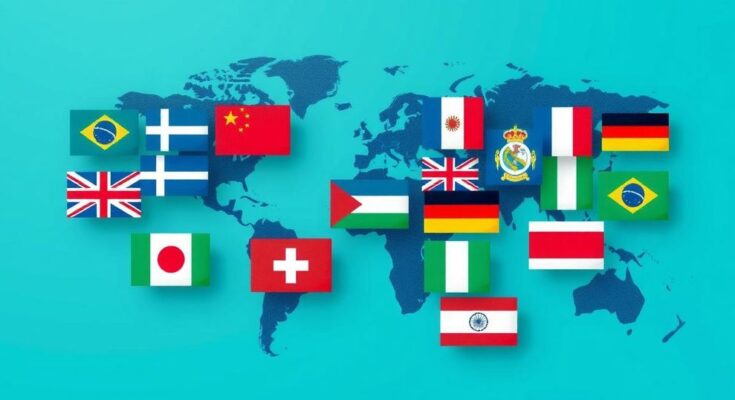Dhruva Jaishankar highlighted Trump’s tariff priorities focusing on Canada, Mexico, China, and the EU, indicating relative exemption for India. He discussed ongoing trade negotiations and the potential impact of reciprocal tariffs. At the Raisina Dialogue, he emphasized the constructive tone of discussions on global issues, including the Russia-Ukraine conflict and the role of the Global South in current geopolitical dynamics.
In a recent discussion, Dhruva Jaishankar, Executive Director of the Observer Research Foundation (ORF), identified the priorities of U.S. President Donald Trump regarding tariffs, noting Canada, Mexico, China, and the European Union. He indicated that India is relatively exempt but warned of potential consequences from forthcoming global reciprocal taxes, which could disproportionately affect India and other countries like Malaysia and Brazil.
Jaishankar highlighted recent interactions between Indian Union Minister of Commerce and Industry, Piyush Goyal, and U.S. Trade Representative that may lead to an interim agreement before April 2. He expressed optimism that both nations could work towards a longer-term agreement by September or October to stabilize their relationship, urging cooperation to prevent retaliatory tariffs.
During the Raisina Dialogue, which commenced on March 17 and features over 100 sessions with delegates from around the world, Jaishankar described the event as a significant global forum with a positive and constructive atmosphere. The dialogue addresses numerous pressing issues, including trade, connectivity, geopolitical shifts, and the ongoing Russia-Ukraine conflict.
On the matter of the Russia-Ukraine situation, he indicated that Ukraine has agreed to terms for a ceasefire and noted the expected conversation between Trump and Russian President Vladimir Putin. Jaishankar emphasized the importance of determining Ukraine’s status post-conflict and the involvement of European nations in supporting Ukraine moving forward.
Regarding India’s potential intermediary role in the Russia-Ukraine negotiations, he suggested that India is open to facilitating dialogue, similar to Saudi Arabia’s current involvement. However, the active engagement has primarily occurred in Saudi Arabia, with India’s role contingent on mutual agreement from both Russia and Ukraine.
Jaishankar pointed to three critical issues facing the Global South: institutional reform in entities like the World Bank and IMF, as well as food, health, and energy security, which have gained prominence due to global crises. Lastly, he remarked on the challenges posed by climate justice and the uncertain role of the U.S. in addressing these concerns.
In summary, Dhruva Jaishankar’s insights underscore the complexities of U.S. trade policies under President Trump, the importance of the Raisina Dialogue as a platform for constructive international discourse, and the ongoing geopolitical challenges, particularly concerning the Russia-Ukraine conflict. He emphasizes the need for cooperation among nations, particularly India, to navigate these global issues effectively.
Original Source: www.business-standard.com




